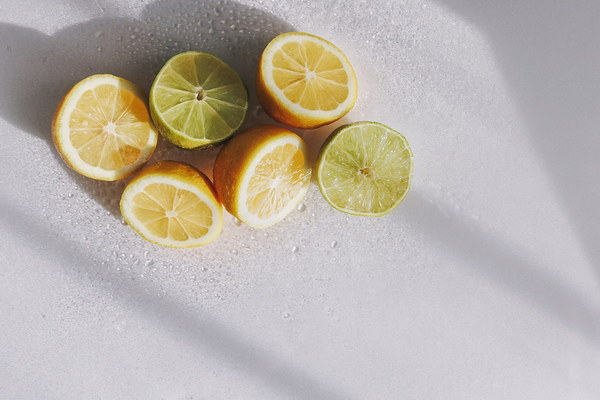Summer's Breeze A Guide to Lung-Cleansing for Children
As the sun rises higher in the sky and the temperatures soar, children often find themselves spending more time outdoors, enjoying the summer breeze. However, the summer months can also bring with them a host of respiratory challenges for little ones. From allergies to smog, the air can be laden with pollutants that can irritate the lungs. To help your child breathe easier and enjoy the summer to the fullest, here is a comprehensive guide to lung-cleansing for children during the warmer months.
Understanding Summer Allergies and Pollution
Summer allergies are a common issue, especially for children who are sensitive to pollen, mold, or other allergens. Additionally, air pollution levels can rise during the summer, causing respiratory distress. It's important to recognize the signs of allergy or pollution-related respiratory issues, such as coughing, sneezing, runny nose, or shortness of breath.
Creating a Lung-Cleansing Environment
1. Indoor Air Quality: To reduce indoor air pollution, ensure your home is well-ventilated. Use air purifiers with HEPA filters to trap allergens and pollutants. Avoid smoking indoors and keep pets out of the bedroom to minimize exposure to dander and other irritants.
2. Outdoor Activities: When planning outdoor activities, check the air quality index (AQI) to avoid high-pollution days. Choose times when the air quality is better, such as in the morning when the sun is rising or in the evening when the winds are cooler.
Nurturing Lung Health through Diet
A healthy diet can help support your child's lung function. Here are some summer foods that can aid in lung-cleansing:
1. Fruits and Vegetables: Rich in antioxidants, fruits and vegetables help to reduce inflammation and strengthen the immune system. Encourage your child to eat a variety of colorful produce, such as berries, leafy greens, and citrus fruits.
2. Herbs and Spices: Herbs like thyme and oregano, and spices like turmeric and ginger, have anti-inflammatory properties that can help ease respiratory symptoms.

3. Hydration: Staying hydrated is crucial for lung health. Offer your child plenty of water throughout the day, and consider adding cucumber slices or lemon slices to water for a refreshing twist.
Physical Activity and Breathing Exercises
Regular physical activity can improve lung capacity and overall respiratory health. Here are some activities that can be beneficial:
1. Swimming: Swimming is a great full-body workout that also encourages deep breathing. The resistance of the water helps to strengthen the lungs.
2. Yoga: Gentle yoga can help improve posture, increase lung capacity, and promote relaxation, which can reduce stress and anxiety that can exacerbate respiratory issues.
3. Breathing Exercises: Teach your child simple breathing exercises, such as the diaphragmatic breathing technique, to help them take deeper, more controlled breaths.
Herbal Remedies and Natural Supplements
Some natural remedies can support lung health. Consult with a healthcare provider before giving your child any supplements or herbs, as some may not be suitable for children:
1. Elderberry: Elderberry is known for its immune-boosting properties and can be taken in the form of syrup or tea.
2. Honey: A spoonful of raw honey can help soothe the throat and reduce inflammation.
3. Mushrooms: Certain mushrooms, like reishi and chaga, have been used traditionally to support respiratory health.
Conclusion
Summer can be a challenging season for children with respiratory issues, but with the right approach, you can help your little one breathe easier. By focusing on a healthy lifestyle, you can equip them with the tools to enjoy the summer months to the fullest while keeping their lungs in tip-top shape. Remember, prevention is key, so take proactive steps to ensure your child's respiratory health this summer.









